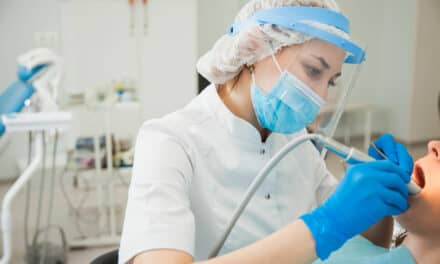Summary: Traditional performance reviews create stress, focus too much on past mistakes, and fail to foster real growth in orthodontic teams. Shifting to continuous growth and development plans encourages regular coaching, supports career progression, and enhances team engagement.
Key Takeaways:
- Performance reviews feel like judgment rather than guidance, often causing unnecessary stress for employees.
- Orthodontic teams need real-time feedback and ongoing support instead of infrequent, backward-looking evaluations.
- Growth and development plans create a coaching-focused culture that enhances both individual skills and overall practice success.
By Cassie Kellner
Let’s talk about performance reviews. You know, those formal sit-downs where you assess your team members, highlight strengths and weaknesses, and assign them a rating (or at least, that’s how it often feels). Maybe you’ve spent hours preparing a detailed evaluation, carefully phrasing constructive feedback, hoping that your employee will leave feeling motivated instead of deflated.
Here’s the thing: Performance reviews are outdated. Yep, I said it. In 2025, I challenge you to toss them out the window. Instead of these rigid, nerve-wracking annual check-ins, let’s focus on something far more effective—growth and development plans.
Now, before you raise an eyebrow, let’s dive into why traditional performance reviews don’t serve orthodontic teams and what we can do instead to create a culture of continuous improvement.
Why Performance Reviews Don’t Work for Orthodontic Teams
For many employees, performance reviews feel like judgment day. Think about it: How often has a team member walked into a review nervous, bracing themselves for criticism? Even when the feedback is mostly positive, the process itself can create unnecessary stress.
In orthodontic practices, where patient flow is fast-paced and adaptability is key, a once-a-year sit-down just doesn’t align with the daily realities of the job. Your team isn’t working in a corporate office where they have months to prepare a presentation or analyze long-term project results. They’re navigating real-time patient care, managing scheduling challenges, adapting to last-minute changes, and ensuring top tier service every single day.
The Core Issues with Performance Reviews
- They focus too much on the past. A review is often a summary of what someone did (or didn’t do) over the past 6 to 12 months. The problem? People can’t change the past—but they can improve their future if given the right guidance.
- They feel like a report card. Even if you avoid numerical ratings, employees often perceive reviews as a grading system. Nobody enjoys feeling like they’re being ranked in their place of work.
- They are too infrequent. Imagine only telling your clinical assistant once a year that they’ve been struggling with chairside timing. It’s not fair to them, and it doesn’t help your practice function at its best.
- They don’t inspire growth. Employees want to know where they’re going, not just where they’ve been. If the review process isn’t tied to their professional growth, it’s a missed opportunity.
- They put too much pressure on one conversation. One review per year doesn’t provide enough time to recognize growth, adjust course, or make meaningful improvements.
The Better Way: Growth and Development Plans
Here’s the big mindset shift: Stop grading people and start growing them. Instead of looking back and critiquing, let’s look forward and build. Growth and development plans create a future-focused, continuous learning environment where employees feel empowered rather than evaluated.
What Are Growth and Development Plans?
Instead of an annual performance review, shift the conversation to how each team member can develop their skills, achieve their career goals, and contribute meaningfully to the practice. This approach fosters a culture of coaching rather than criticism.
A great growth plan includes:
- Strengths and skills
- What is this team member already great at? Maybe your assistant is incredible at patient communication—how can they sharpen that skill even further?
- Career goals
- Where do they see themselves in 1 to 3 years? Does your treatment coordinator want to step into a lead role? Let’s map out the path to get them there.
- Ongoing progress
- Instead of a one-time evaluation, have regular, informal check-ins to discuss their growth, challenges, and opportunities for improvement.
How to Make the Switch from Performance Reviews to Growth Plans
Shifting from annual reviews to ongoing development conversations isn’t difficult—it just requires a new perspective. Here’s how you can start implementing this approach in your orthodontic practice today:
1. Skip the Grading System. Forget about performance scores, ratings, or lengthy lists of “areas for improvement.” Instead, start the conversation with:
- “What do you love about your job?”
- “What’s one thing you’d like to get better at doing?”
- “How can we support your growth?”
This changes the tone from judgmental to collaborative and encouraging.
2. Create Individualized Growth Plans. Every team member is different—so why treat them all the same? Sit down with each person and discuss:
- Their current strengths
- Areas they’d like to improve
- Skills they’d like to develop
- Career aspirations
Then, together, build a simple, actionable plan that includes small, achievable steps toward their goals.
Example: If your clinical assistant wants to improve their leadership skills, their growth plan could include shadowing a senior team member, attending a leadership workshop, or taking on more responsibility in training new hires.
3. Make It a Coaching Conversation. Think of yourself as a mentor, not a judge. Instead of simply pointing out what needs to be fixed, ask open-ended questions that help them reflect and grow.
For example, instead of saying, “You need to improve your efficiency with chairside,” ask:
- “What do you think slows you down when working with patients?”
- “Is there anything I can do to make the process easier for you?”
- “Do you need tips or tricks to help you during certain appointments?”
This way, your employee is part of the solution, which builds confidence and ownership.
4. Tie Growth to the Big Picture. Help team members understand how their personal development aligns with the practice’s success. Show them their growth isn’t just about checking a box—it’s about contributing to something bigger.
For example, if your treatment coordinator improves their case presentation skills, it doesn’t just benefit them—it leads to better patient education, higher case acceptance, and more successful treatment outcomes.
5. Check in Regularly. Growth isn’t a once-a-year conversation. Make check-ins a regular, informal part of your practice culture. By making growth discussions routine, employees feel supported year-round, not just once a year.
READ MORE: Why Onboarding is a Must in Orthodontics (and How to Make it Painless)
The Payoff for Your Practice
When you replace evaluations with empowerment, the entire atmosphere of your practice shifts.
Your team will feel:
- More valued—They see that you’re invested in their success.
- More engaged—Growth-oriented employees bring more energy to their work.
- More committed—They’re less likely to leave because they see a clear future with your practice.
- More accountable—They take ownership of their progress because they’ve co-created their growth plan.
What does this mean for you as a practice leader? Better patient care, higher team morale, and a thriving, successful practice. If you’re still holding onto performance reviews out of habit, now is the time to let them go. Your team deserves more than an annual evaluation—they deserve continuous coaching, mentorship, and support.
So, orthodontic leaders, let’s commit to something better in 2025: Stop grading your people. Start growing them. OP
Photo: ID 52647039 © Titipong Jaiharn | Dreamstime.com

Cassie Kellner has over 20 years of experience in orthodontics, taking on diverse roles, from clinical team member and leader to consultant, lecturer, and practice coach. These experiences have shaped her belief that the well-being of team members is the foundation of true orthodontic success. Kellner is passionate about empowering orthodontic teams by cultivating cultures of support, growth, and wellness. She firmly believes that thriving, fulfilled teams are the key to creating exceptional practices beyond numbers and metrics. As the founder of Everbloom, Kellner dedicates her work to inspiring and guiding orthodontic professionals to build workplaces where every team member feels valued, supported, and equipped to thrive. Visit discovereverbloom.com to learn more.










